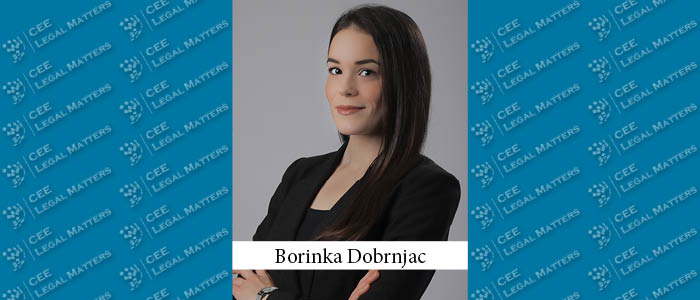North Macedonia currently lacks AI-specific regulations, lagging behind neighbouring countries that have implemented guidelines or laws. Although the Macedonian Fund for Innovation and Technology Development (FITD) and the government initiated efforts in 2021 to create a National Strategy for AI (National Strategy), progress has been slow due to challenges such as insufficient data, human resources, and technical capabilities. Despite this, there is a strong commitment, supported by organisations like the World Bank and UNDP, to develop a comprehensive AI strategy aligned with European Union (EU) standards.
Understanding the Legal Aspects of the EU Directive on Corporate Sustainability Due Diligence
The European Union lawmakers have completed the group of many sustainability and circularity-focused initiatives introduced during the last legislative cycle. The Corporate Sustainability Due Diligence Directive (CSDDD) is a significant step towards promoting sustainable and responsible business practices and more transparent company operations. This Directive completes the Corporate Sustainable Reporting Directive (CSRD) from December 2022, which updates the process of how and what companies report in their non-financial statements, according to European sustainability standards.
Ukraine: Introducing Construction Licensing for Non-residents Under the Simplified Procedure
On 16 August 2024, the Resolution of the Cabinet of Ministers of Ukraine as of 9 August 2024 No. 925 ("Amending Resolution") became effective and introduced amendments to the Resolution of the Cabinet of Ministers of Ukraine as of 18 March 2022 No. 314 "On Certain Issues of Ensuring of Carrying Out Commercial Activities During Martial Law" ("Resolution on Simplified Licensing Procedure").
Bulgaria is Considering Further Support for Wind Projects and Regulation of BESS
The Bulgarian energy regulator has proposed changes to the Grid Connection Ordinance No. 6, adopted earlier this year, which aim to provide flexibility in the application process, support for wind projects, and further regulation of battery energy storage systems (BESS).
Guest Worker Residence Permit – The list of Eligible Countries is Finally Here
In 2024, Hungary introduced new regulations concerning the employment of guest workers. The new law, which took effect at the start of the year, outlines specific criteria for obtaining a guest worker residence permit. Under the new regulations, a guest worker can receive a residence permit if the following conditions are met:
Montenegro’s New Gambling Framework: A Step Towards Responsible Growth
In August 2024, Montenegro’s government took a significant step towards modernising the country’s gambling industry by adopting the Fiscal Strategy for 2024-2027. This ambitious plan, aimed at ensuring macroeconomic stability and responsible governance, includes substantial changes to the gambling framework that could reshape the sector’s future.
How to Address the Issue of Authorship When Publishing a Photograph by an Unidentified Author?
Recently, the Court of Appeal in Belgrade, in its ruling No. Gž4 168/22 dated May 30, 2024, addressed the issue of determining copyright infringement in a case where, at the time of publication of the work, a different author was credited as the author.
Austria: EU Nature Restoration Law Has Come Into Force
The Regulation (EU) 2024/1991[1], known as the "Nature Restoration Law" ("NRL"), represents a significant EU initiative aimed at reversing ecosystem degradation. The NRL requires Member States to restore degraded ecosystems and enhance biodiversity and resilience across land and marine areas. Effective from 18 August 2024, the NRL imposes binding targets for ecosystem restoration, presenting both opportunities and challenges. This article analyses the NRL's potential impacts on the private sector, highlighting significant concerns and legal issues.
Ukrainian Government Approves National Renewable Energy Action Plan, 110 MW RES Auction, and Contest to Construct 700 MW of High Maneuverable Generation
On August 13, 2024, the Cabinet Ministers of Ukraine (CMU) adopted important resolutions which will accelerate the deployment of renewable energy sources (RES) and distributed generation in Ukraine, namely:
Offer of an Annex to the Employment Contract: Is There a Delay in the Deadline for Employee Response During Temporary Work Incapacity?
In Judgment No. Rev2 1986/22 dated November 24, 2023, the Supreme Court took the position that the days during which the employee was on sick leave cannot be counted in the eight-day period within which the employee is obligated to respond to the offer of an annex to the employment contract, starting from the date of receipt of the offer.
Czech Republic: Sustainability-Linked Loans: LSTA vs. LMA Frameworks
The sustainable finance sector has seen a surge, with Sustainability-Linked Loans (SLLs) hitting EUR 212 billion in early 2024[1], driven by a global emphasis on environmental responsibility and incentivizing ESG-compliant practices. This trend underscores the role of SLLs in corporate finance and global sustainability efforts.
Ukraine Approves Pilot Online Auctions to Distribute RES Support Quota for 2024
On August 13, 2024, the CMU adopted Resolution N 757-р On some issues of pilot auctions for the allocation of the support quota in 2024 (the “Auction Quota Resolution”).
Bulgaria Opens EU-Funded 3000 MWh Stand-Alone Battery Storage Facility Tender
On 21 August 2024, the Bulgarian Ministry of Energy opened a tender procedure for National infrastructure for storage of renewable energy (RESTORE) for granting stand-alone battery energy storage system (BESS) tender funded under the EU’s Recovery Resilience Facility (the “Procedure”).
The Evolution of Trademark Cancellation and Revocation Procedures
As a preliminary overview, as of January 2023, applications for cancellation on absolute and relative grounds, as well as for revocation due to non-use of national trademarks and international trademarks designating Romania, can be brought before the Romanian State Office for Inventions and Trademarks (the “IPO”).
Copyright: A Ghostwriting Case Settled Fairly
In a recent legal resolution, an author, a mechanical engineer employed to oversee the printing machinery at a prominent publishing house, found himself at the heart of an unexpected ghostwriting controversy.
RES Producers Shall Renew Contracts with the Guaranteed Buyer
On 26 July 2024, the National Energy and Utilities Regulatory Commission (NEURC) adopted Resolution 1381, amending key provisions of the following agreements:
Latest Aviation Trends and General Overview of Aviation Regulation in Lithuania
Although Lithuania no longer has a national airline, charter companies are popular in the market, especially during holiday periods. Although the Lithuanian aviation industry was heavily affected by the COVID-19 pandemic, no charter company has gone bankrupt. In fact, just recently in spring 2024, one charter company undergoing restructuring finished restructuring procedures earlier than planned and successfully continues its operations from Lithuania.
Ukrainian Government Approves Contest to Construct 700 MW of High Maneuverable Generation
On August 13, 2024, the CMU adopted Resolution N 756-р On some issues related to the contest for the construction of generating capacity and the implementation of demand-side management measures (the “Contest Conditions Resolution”) setting forth the following conditions for the construction of generating capacity:





























